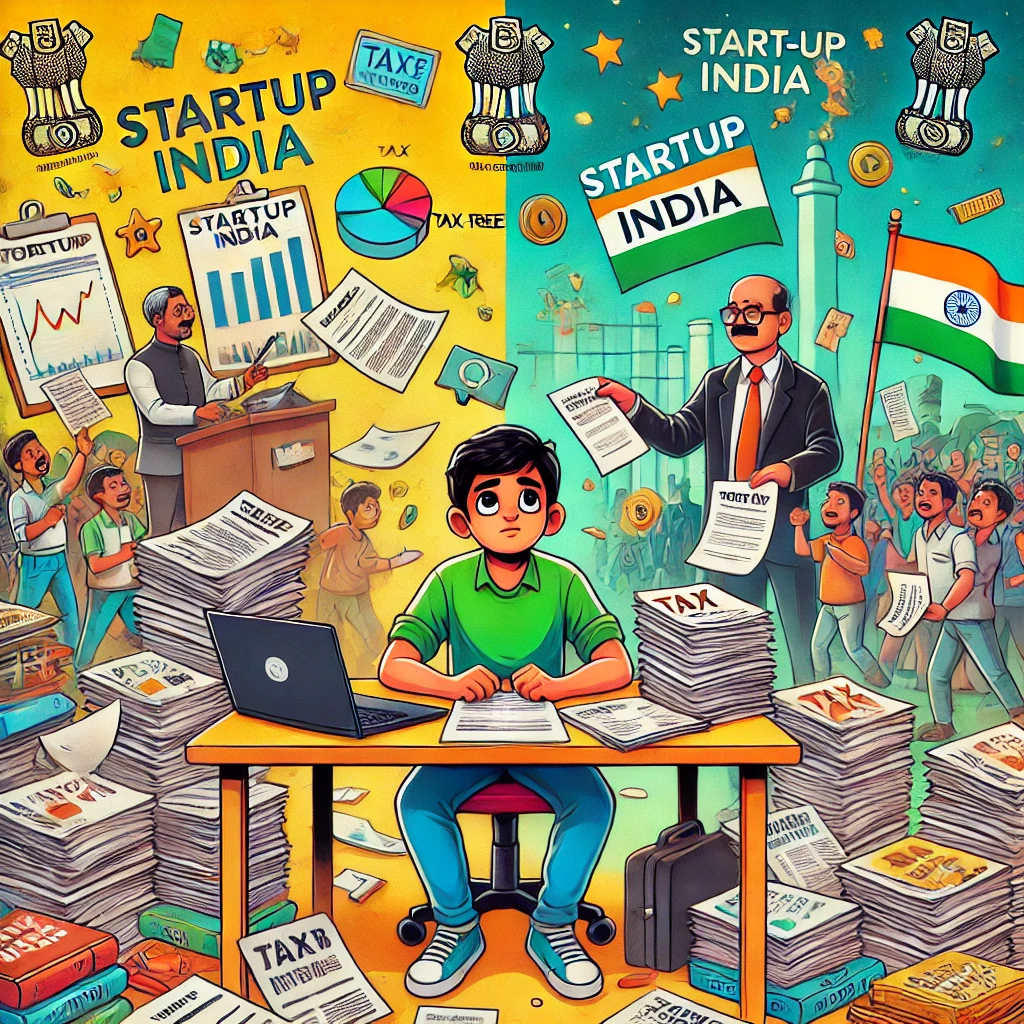Back
Rishav Kumar
🚀 Aspiring Entrepre... • 1y
Government Initiatives Supporting Startups in India India loves startups. No, seriously. The government is practically throwing schemes, tax breaks, and incubators at entrepreneurs like confetti at a wedding. But while these initiatives have done wonders for innovation, they also come with their own set of hurdles (because, well, bureaucracy). Let’s break it all down—what’s working, what’s a challenge, and whether these initiatives are truly the launchpad Indian startups need. 1️⃣. Startup India: The Flagship Cheerleader Launched in 2016, Startup India is the poster child of India’s push for entrepreneurship. The initiative provides tax benefits, funding support, and networking opportunities through incubators and accelerators. ✅ Pros: 3-Year Tax Holiday: Because every rupee saved is a rupee spent on marketing (or a coffee-fueled brainstorming session). Easy Compliance: A self-certification system means you don’t have to fill out forms that look like ancient Sanskrit scriptures. Fund of Funds (₹10,000 Cr): The government doesn’t invest directly but channels money through venture funds to fuel startups. ❌ Cons: Not for Everyone: Only “recognized” startups benefit, and getting that recognition isn’t exactly a walk in the park. Funding? Where? Many startups struggle to actually access the Fund of Funds due to complex eligibility criteria. Delayed Incentives: Tax breaks are great, but cash flow problems don’t wait three years. 2️⃣. Atal Innovation Mission (AIM): Fostering Future Entrepreneurs Named after former PM Atal Bihari Vajpayee, AIM focuses on nurturing young innovators with Atal Tinkering Labs in schools and Atal Incubation Centers (AICs) for startups. ✅ Pros: Encourages Innovation from a Young Age: Kids today don’t just make paper planes—they prototype drones. Incubators for Support: Startups get mentorship, office space, and funding through AICs. ❌ Cons: Limited Reach: Not all students have access to Atal Tinkering Labs, limiting their impact. Execution Gaps: Some AICs lack proper infrastructure and experienced mentors. 3️⃣. Stand-Up India: Bringing Diversity to the Startup Scene This initiative supports women and SC/ST entrepreneurs by providing bank loans between ₹10 lakh and ₹1 crore. ✅ Pros: Encourages Inclusivity: Helps underrepresented entrepreneurs get a foot in the door. Bank Loans Without Bias: Reduces discrimination in startup financing. ❌ Cons: Loan Approval Challenges: Banks aren’t always thrilled about giving out loans to first-time business owners. Lack of Awareness: Many eligible entrepreneurs don’t even know this scheme exists. 4️⃣. State-Specific Startup Policies: The Regional Boost Many states have their own startup policies, with Karnataka, Maharashtra, and Telangana leading the charge. ✅ Pros: Local Focus: Policies are tailored to state-specific industries (Bengaluru’s IT, Maharashtra’s fintech, etc.). Additional Grants & Subsidies: Some states provide extra incentives beyond central government schemes. ❌ Cons: Uneven Distribution: Some states lag behind, creating regional startup hotspots instead of nationwide growth. Red Tape: Getting approvals can be as complicated as assembling IKEA furniture without instructions. ▶️ The Final Verdict: Are These Initiatives Enough? Government initiatives have undeniably fueled India’s startup boom. But… startups can’t rely on just incentives and tax breaks. The real success factor is execution—both by the government and the entrepreneurs. What Needs Improvement? ✔ Simpler Access to Funds: A smoother process to get funding without 20 layers of paperwork. ✔ Better Infrastructure in Incubators: Startups need more than just office space; they need quality mentorship. ✔ More Awareness & Transparency: Many startups don’t know which schemes they qualify for, or how to apply. So, are these initiatives a boon or a bureaucratic maze? The answer is: both. If you can navigate the system, you’ll find solid support. If not… well, you might just end up explaining your startup idea to five different government officers before seeing a single rupee. Either way, the startup wave in India is strong, and the government is (mostly) on board. Now, it’s up to entrepreneurs to ride the wave—or at least, not get lost in the paperwork.

Replies (4)
More like this
Recommendations from Medial
Sai Charan
Hard work beats tale... • 1y
Modi government startup FAKERY - Congress president Mallikarjun Kharge targeted the Modi government for providing the Indian startups with"almost negligible support, which he called a "STARTUP OF FAKERY." - Barely1.58% of the accredited startups
See MoreVedant SD
Finance Geek | Conte... • 1y
Day 7: Securing Funding for Your Bangalore Startup Funding is the lifeblood of many startups, and Bangalore offers a vibrant ecosystem for founders seeking capital. This post explores various funding options for Bangalore-based startups, including:
See MoreDownload the medial app to read full posts, comements and news.












/entrackr/media/post_attachments/wp-content/uploads/2021/08/Accel-1.jpg)





















